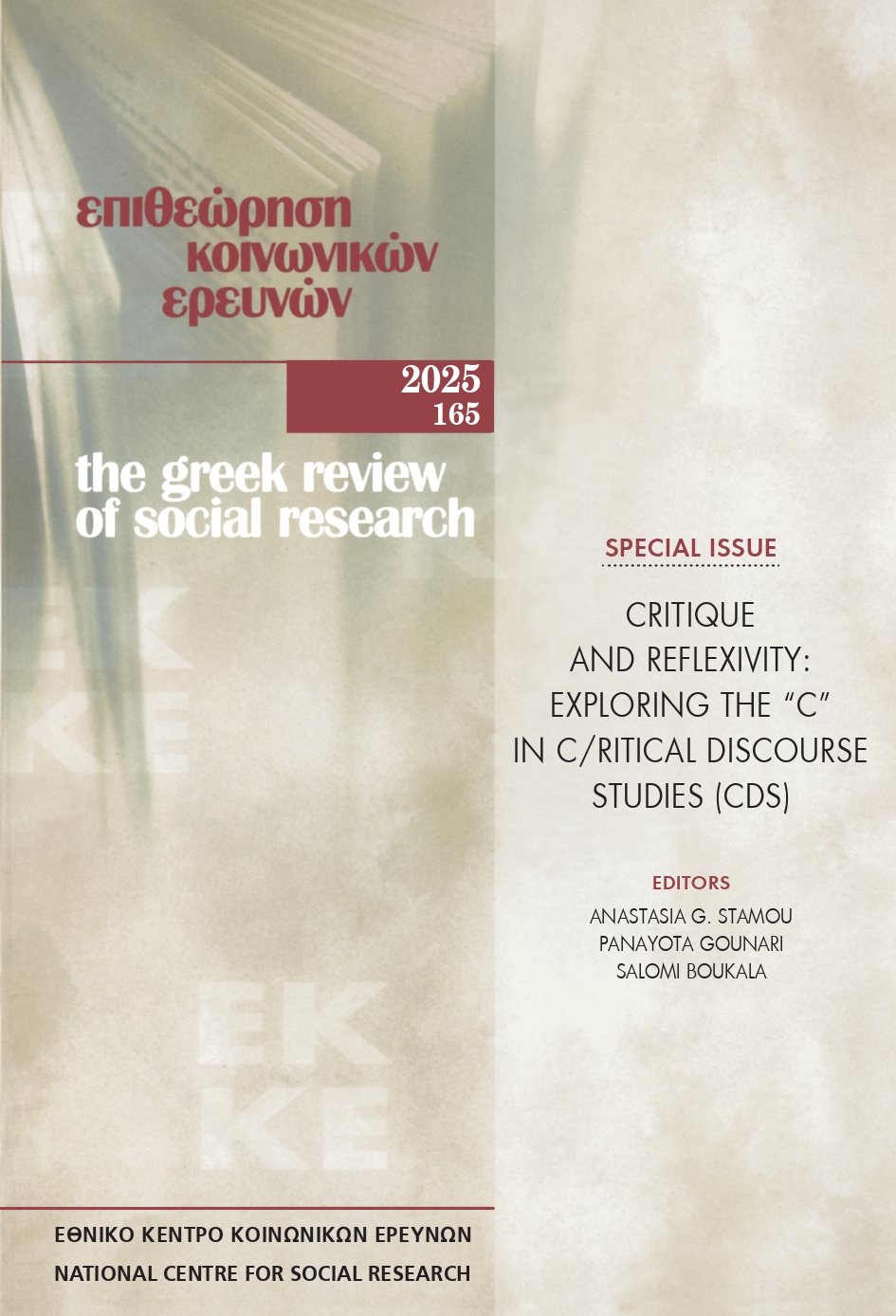Wrestling with the Right Side Of History: On Discourse, Pedagogy, Time, and the Ethics of Critical Scholarship

Abstract
This reflexive piece offers a critical reflection on my scholarly trajectory by mapping the theoretical and political commitments that have shaped my academic work over time. Drawing from lived experiences of dislocation, and political urgency, I trace how my scholarship has developed across three interrelated thematic domains: (1) the discursive construction and normalization of far-right authoritarianism, (2) the ideological functions of education as a contested site within capitalist structures, and (3) the centrality of historical thinking as a methodological, epistemological, and political imperative. Grounded in Critical Theory —particularly the Frankfurt School— and articulated through Critical Discourse Studies and Critical Pedagogy, I examine how my work has aimed to expose and disrupt the logics of neoliberalism, authoritarianism, and epistemic violence. Across these domains, I argue that critique is not a methodological add-on but a historically and politically situated praxis. This paper is both an intellectual memoir and a synthesis of scholarly contributions, foregrounding the imperative to historicize, politicize, and radicalize intellectual labor in the service of social transformation.
Article Details
- How to Cite
-
Gounari, P. (2025). Wrestling with the Right Side Of History: On Discourse, Pedagogy, Time, and the Ethics of Critical Scholarship. The Greek Review of Social Research, 165, 39–58. https://doi.org/10.12681/grsr.42199
- Section
- Articles

This work is licensed under a Creative Commons Attribution-NonCommercial 4.0 International License.
Authors who publish with this journal agree to the following terms:
- Authors retain copyright and grant the journal right of first publication with the work simultaneously licensed under a Creative Commons Attribution Non-Commercial License that allows others to share the work with an acknowledgement of the work's authorship and initial publication in this journal.
- Authors are able to enter into separate, additional contractual arrangements for the non-exclusive distribution of the journal's published version of the work (e.g. post it to an institutional repository or publish it in a book), with an acknowledgement of its initial publication in this journal.
- Authors are permitted and encouraged to post their work online (preferably in institutional repositories or on their website) prior to and during the submission process, as it can lead to productive exchanges, as well as earlier and greater citation of published work (See The Effect of Open Access).


